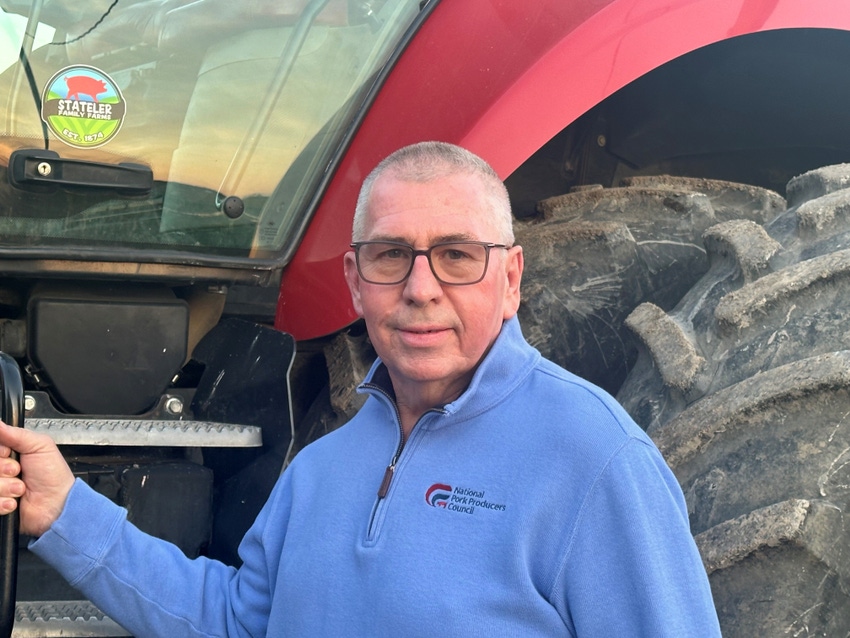Making our case to the SEC
National Pork Producers Council is working to keep tractors in the fields, not in the streets.
March 19, 2024

By Duane Stateler, NPPC president-elect and producer from Ohio
For nearly two months, I’ve watched farmers in the European Union protest policies intended to make farming “more climate friendly” but which ultimately were bureaucratic, intrusive and would drive production costs up, making them uncompetitive globally. While unfortunate to see this in the EU, it’s alarming when these same approaches seep into U.S. policies and threaten similar challenges for U.S. pork producers.
Two years ago, the U.S. Securities and Exchange Commission proposed rules “to enhance and standardize climate-related disclosures by public companies.” However, rather than limiting its impact to those gigantic publicly traded companies, the proposal included controversial Scope 3 reporting requirements that would burden agriculture and family farmers like me.
Scope 3 emissions reporting covers indirect emissions throughout the supply chain, as opposed to Scope 1 emissions from direct production or Scope 2 emissions from energy consumption. As originally proposed, the provision could have mandated large retailers and meatpackers to disclose climate-related data from every farm in its supply chain. This would impose costly and potentially unattainable measurement standards, along with burdensome paperwork for farmers who then would carry the risk of legal liability to Wall Street for changes far beyond a farmer’s control.
For pork producers, this potential liability would drive consolidation as larger companies sought to control their supply chains to avoid shareholder and activist litigation risks, forcing independent producers out of business, exposing producers to lawsuits, and creating new avenues for activist groups to attack the agriculture industry. The similarities between the SEC’s proposal and EU policies are striking—environmentalists and the government seeking to impose burdensome, costly requirements on agriculture.
Thankfully, the National Pork Producers Council sought to stop the rule. The association immediately developed a strategic approach to slow the process down and work to influence the SEC. They did this by building a large coalition and working with longstanding partners, in agriculture and beyond, to make our case and successfully pull back the scope of the SEC’s final rule. It’s one of the many ways that NPPC works to influence producers’ interests with policymakers throughout government.
On March 6, the SEC published its final rule that completely excluded Scope 3 requirements - a significant win for all of agriculture.
My parents, and theirs before them, taught me that we need to take care of our natural resources for the health of our farms and the communities in which we operate. It’s a multi-generational mindset. Improving how we farm takes time. We rely on each other to test new ideas and see how they work, remembering we only have one crop rotation or two pig herd rotations in a year to learn from. That is why I accepted to be one of three Blanchard River Demonstration Farms in Ohio working on water quality. Using the latest technology to measure and test the water that leaves our farm, we are following the science at the farm level rather than hypothetically created.
Our industry takes environmental stewardship seriously because it’s good for business. Farmers are at the bottom of the supply chain ladder, and many interests rely on us. We need policies that protect our ability to farm, not add complexities and costs. We also need stakeholders, not special interests, to lead a practical approach to environmental stewardship driven by science. That is not what was happening in the EU as tractors lined city streets in protest and it further highlights the benefits of having organizations like NPPC in our corner.
You May Also Like



